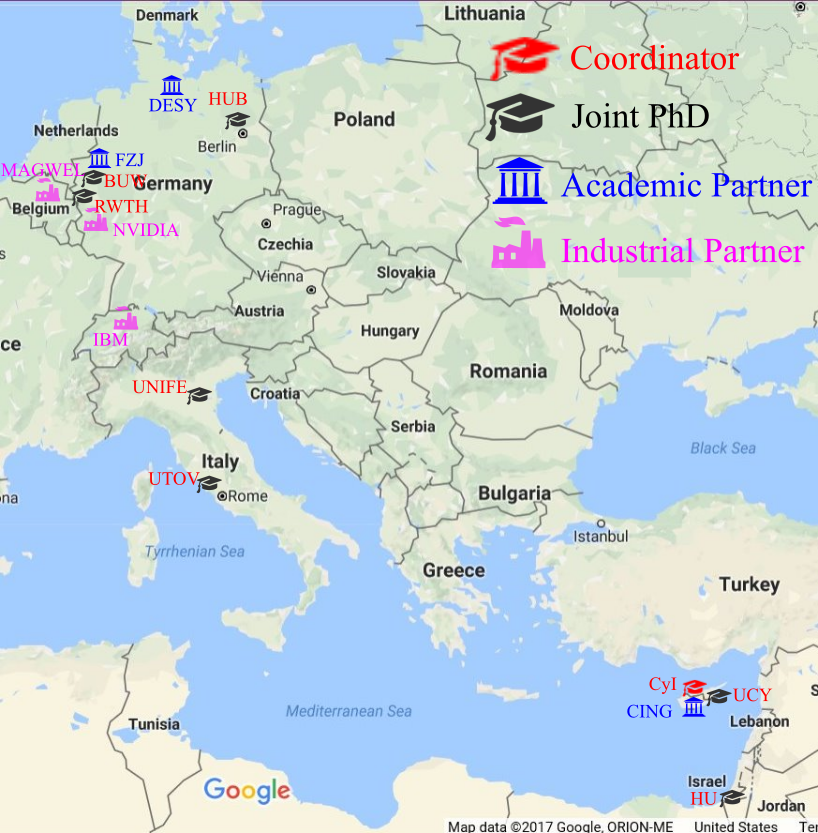About STIMULATE
Simulation alongside theory and experiment is nowadays considered an integral part of scientific discovery. As computation speeds up and new technologies and instruments improve, data generation in all fields of science is rapidly increasing. As a consequence, researchers face new challenges: Data collection exceeds by far the capacity to validate, analyze, visualize, store, and curate the information contained.
Additionally, traditional, single-scale, macroscopic models are becoming inadequate for the accuracy requirements of modern physical, biological and engineering applications that involve multiscale phenomena occurring over vastly different scales. Scientific and engineering disciplines have been at the forefront of applying simulation to study complex phenomena that in many cases involve multiple scales, such as turbulence and neurogenerative diseases. Physicists, biologists and engineers constantly need innovative techniques to handle efficiently large-scale simulations and the exponentially increasing data sets.
Many researchers, in fact, are talking of a new research paradigm that uses big data in a non-hierarchical manner to achieve scientific breakthroughs. Whether or not there is agreement on the so called fourth paradigm of big data science, it is clear that we need to have the tools and competencies to enable computational scientists to efficiently manage and explore extreme scale data. In this project, we tackle applications that can greatly benefit from new simulation and data approaches. These range from exascale simulations in lattice QCD, where high-throughput reduction and analysis capabilities of the large volumes of data generated is needed for extracting information, to simulations at the molecular and neuronal networks level of the neuronal dysfunction associated with Parkinson’s disease (PD), which is the second most common, fatal neurodegenerative disease, affecting about 1.5 million people worldwide. Adopting a unified approach to solve the challenges posed by extreme computing and data across disciplines has been recognized as the appropriate methodology and new initiatives for centers of excellence and research institutes following this underlying principle are taking place world-wide. A crucial component of enabling the next generation of scientific breakthroughs identified by these initiatives is the education of computational scientists trained in both exascale and data-intensive computing within their domain of specialization.
This requires a highly interdisciplinary environment and goes beyond what is customarily delivered by traditional departments. The ambition of this European Joint Doctorate (EJD) program SimulaTIon in MUltiscaLe physicAl and biological sysTEms (STIMULATE) is to deliver such an interdisciplinary educational program with research projects that address exascale simulation and data challenges.

STIMULATE Consortium Composition
The consortium includes seven public universities (BUW, RWTH, HUB, HU, UCY, UNIFE and UTOV) and one non-profit private research institute (CyI) who will give joint triple degrees. In addition, three academic, non-profit research organizations, DESY, CING and FZJ, and three non-academic private companies, namely MAGWEL, IBM-Zurich and NVIDIA will complement the training of the ESRs providing secondments and contributing to the workshops and lectures.
Combined, the consortium is scientifically excellent:
- BUW and HUB are leading groups in mathematical modeling and numerical analysis;
- UNIFE, CyI, DESY and FZJ are leading academic nodes in simulation and data science, HPC technologies and code development complemented by NVIDIA, IBM and MAGWEL which will bring the industrial setting;
- UTOV, UCY, CyI, DESY and BUW have world renowned groups in lattice QCD and code development;
- UTOV, UNIFE, RWTH and HUB have pioneered a wide range of developments in CFD. UTOV has two ERC grants in turbulence one of which is held by the WP2 leader (NewTURN);
- RWTH, HU, FZJ, CyI and CING cover a wide spectrum of applications in biological systems and neuroscience. A complete list of the consortium is shown below.
PhD awarding Institutions
- The Cyprus Institute (CyI, Coordinator)
- Bergische Universität Wuppertal (BUW)
- Rheinisch-Westfälische Technische Hochschule Aachen (RWTH)
- Humboldt-Universität zu Berlin – HUB
- Hebrew University of Jerusalem – HU
- University of Cyprus (UCY)
- Università degli Studi di Ferrara (UNIFE)
- Universita degli Studi di Roma Tor Vergata (UTOV)
Academic partners
- Stiftung Deutsches Elektronen Synchrotron – DESY
- The Cyprus Institute of Neurology and Genetics – CING
- Forschungszentrum Jülich – FZJ
Non-academic partners
- MAGWEL NV – MAGWEL
- IBM Research GmbH – IBM
- NVIDIA GmbH – NVIDIA
The academic partners have many years of experience in research and education with well-established groups in the scientific areas of this project. The research institutes FZJ and CyI both host supercomputers and prototype computers (such as GPU and Xeon Phi clusters), while DESY is a Tier-1 for particle physics. All three have research groups with a unifying interest in simulation and data science. These research institutes have developed links to industry that help bridge the knowledge gap between academia and industry, theory and application. Examples are the NVIDIA Application Lab at FZJ, jointly operated by FZJ and NIVIDIA, focusing on enabling scientific applications for GPU-based architectures, and common research activities between HUB and MAGWEL on optimization of power circuits. The ability to translate science into applications is a crucial component of the industrial partners that we will seek to transfer to the fellows and makes them an indispensable part of the program.







